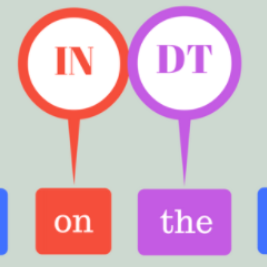Lexical-syntactic flexibility, in the form of conversion (or zero-derivation) is a hallmark of English morphology. In conversion, a word with one part of speech is placed in a non-prototypical context, where it is coerced to behave as if it had a different part of speech. However, while this process affects a large part of the English lexicon, little work has been done to establish the degree to which language models capture this type of generalization. This paper reports the first study on the behavior of large language models with reference to conversion. We design a task for testing lexical-syntactic flexibility -- the degree to which models can generalize over words in a construction with a non-prototypical part of speech. This task is situated within a natural language inference paradigm. We test the abilities of five language models -- two proprietary models (GPT-3.5 and GPT-4), three open-source models (Mistral 7B, Falcon 40B, and Llama 2 70B). We find that GPT-4 performs best on the task, followed by GPT-3.5, but that the open source language models are also able to perform it and that the 7B parameter Mistral displays as little difference between its baseline performance on the natural language inference task and the non-prototypical syntactic category task, as the massive GPT-4.
翻译:暂无翻译



